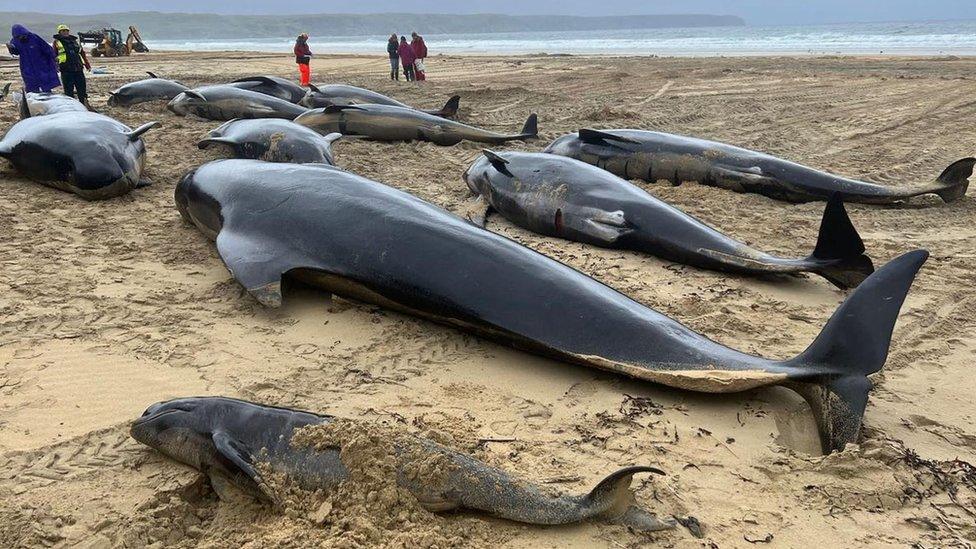Sizewell: Inflatable whales used for beach training exercise
- Published
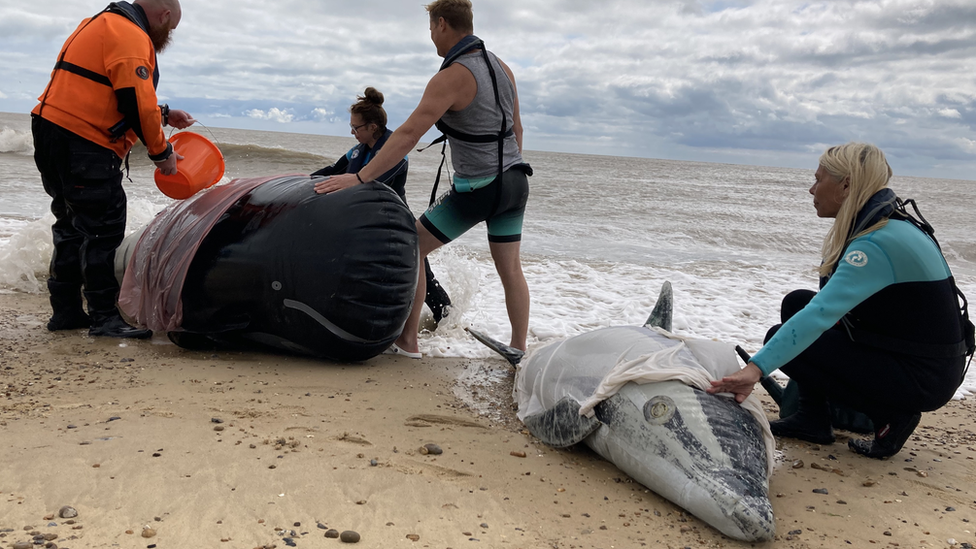
The British Divers Marine Life Rescue charity rescue life-size inflatable model whales on Sizewell beach
About 50 volunteers from a marine mammal rescue charity have taken part in a "mass stranding" whale rescue training exercise.
The British Divers Marine Life Rescue (BDMLR) tested people's skills on several life-size inflatable models of pilot whales on Sizewell beach in Suffolk.
The models were "rescued" under simulated conditions.The organisation said the exercises were "really important and useful" but were " a huge logistical challenge".
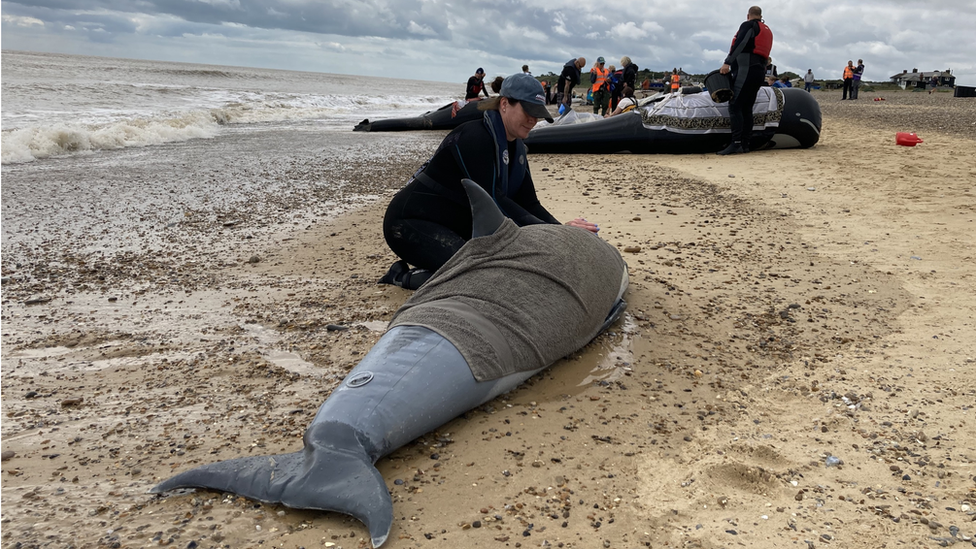
Volunteers tested their first aid, assessment, rescue and communication skills
Volunteer Janette Bone said they had been assessing the health of the model animals on the beach, then "monitoring them and keeping them comfortable until the veterinary people arrive".
The BDMLR said there had been a rise in mass strandings involving pilot whales in the UK - and sometimes other species - with one of the largest incidents involving about 100 dolphins in the north of Scotland.
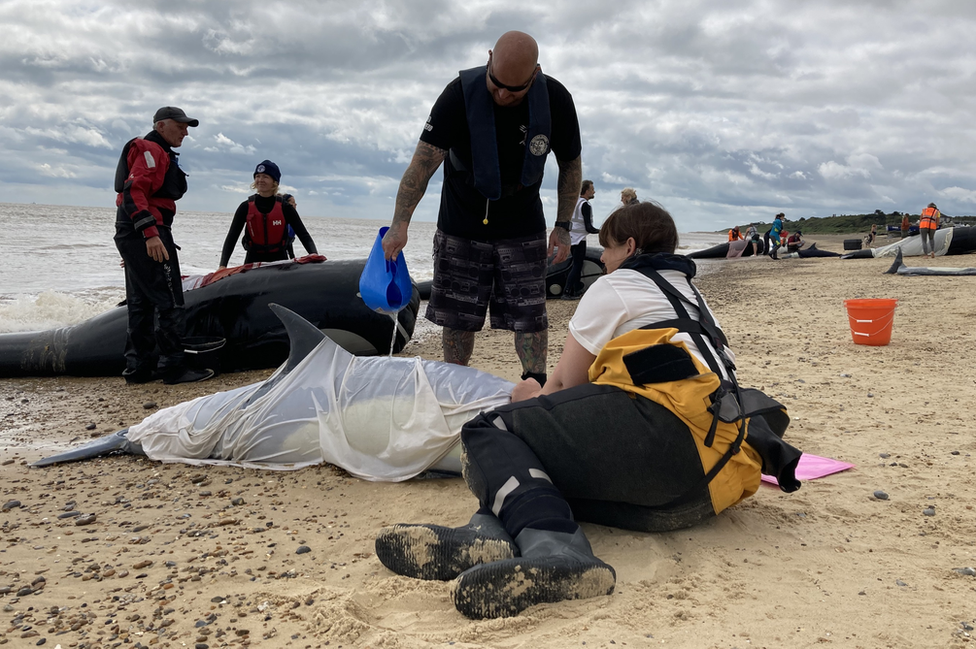
Incident coordinators practiced overall organisation including liaising with emergency services and media and crowd control
Reasons for a stranding can include a sick or injured animal inadvertently leading others ashore as they try to help it, an animal being frightened by loud underwater noises such as sonar or simply by whales becoming disoriented in unfamiliar areas.
Director of Welfare and Conservation, Dan Jarvis, said the exercises were "really important" to test first aid knowledge and communication skills and overall coordination of an operation.
"They don't happen too often as they're a huge logistical challenge to set up, and of course we were unable to run them during the pandemic," he said.
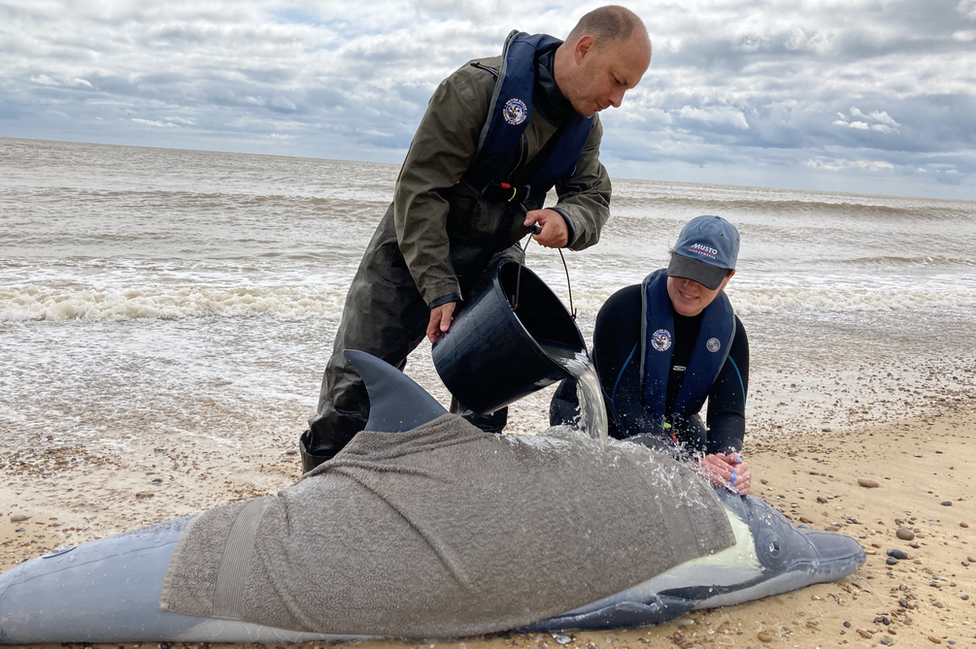
Volunteers practised keeping the mammal comfortable during the exercise
Mr Jarvis warned members of the public who found a live stranded mammal that they should not "just go dragging the animal back into the water" and urged them to contact the charity.
"You are putting yourself at risk, you are probably also putting the animal at risk [and] if it's there because it's a very unhealthy animal, putting it back in the sea is actually not the right thing to do at all because it could cause it more distress," he said.
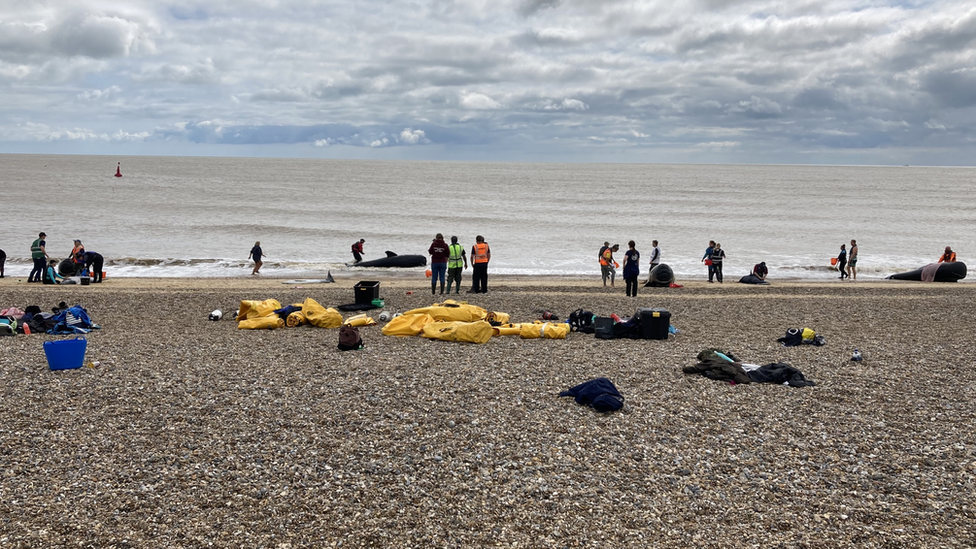
The charity said the training exercises were a "huge logistical challenge" but very important

Follow East of England news on Facebook, external, Instagram, external and Twitter, external. Got a story? Email eastofenglandnews@bbc.co.uk, external or WhatsApp us on 0800 169 1830
- Published22 July 2023
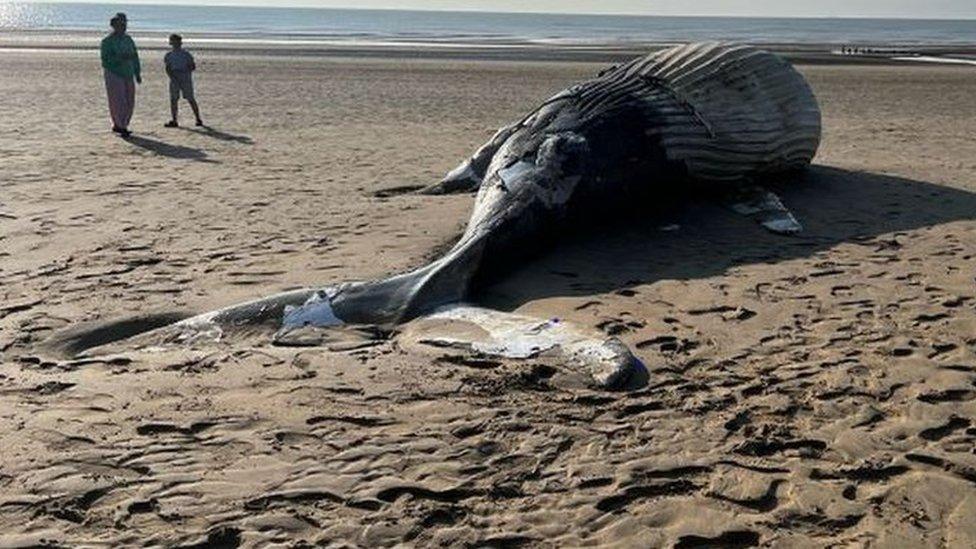
- Published6 May 2023
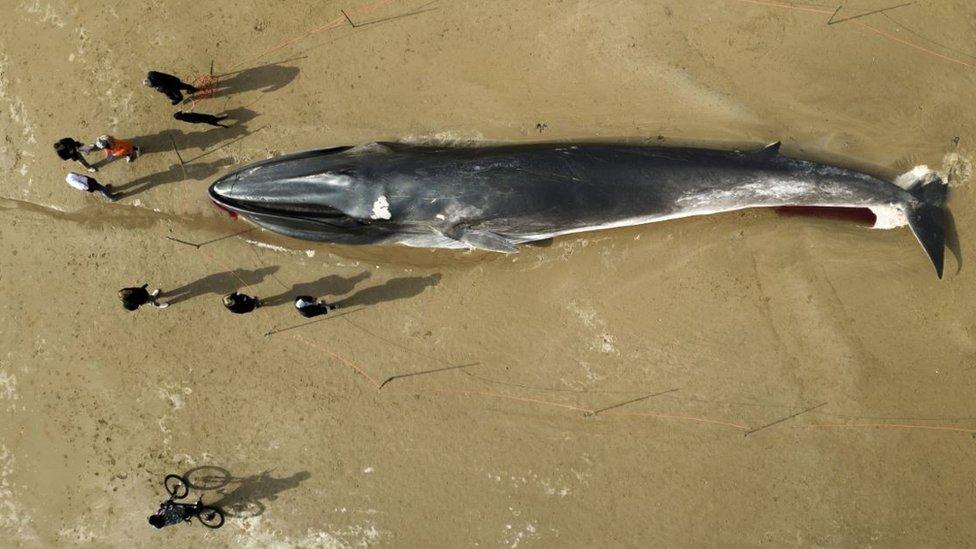
- Published20 July 2023
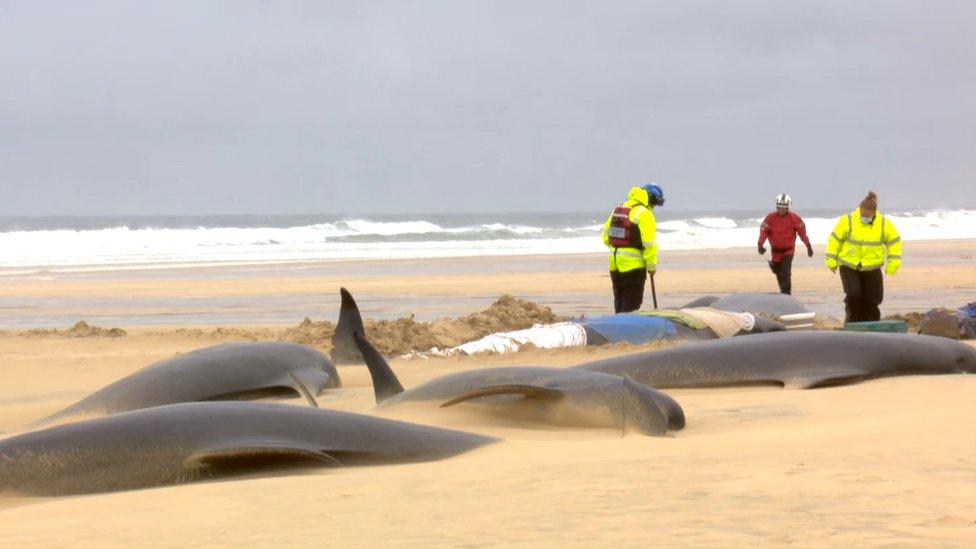
- Published17 July 2023
